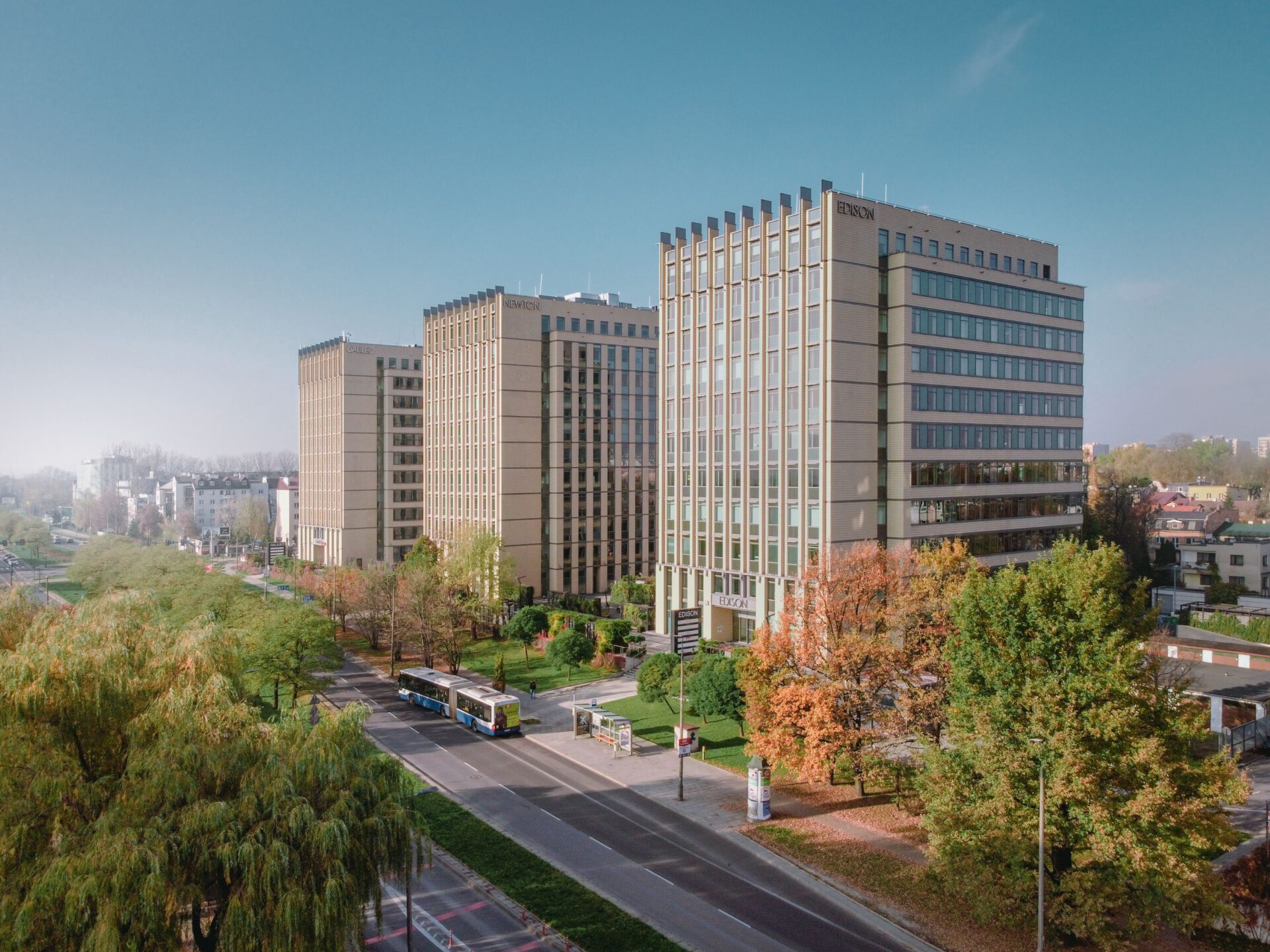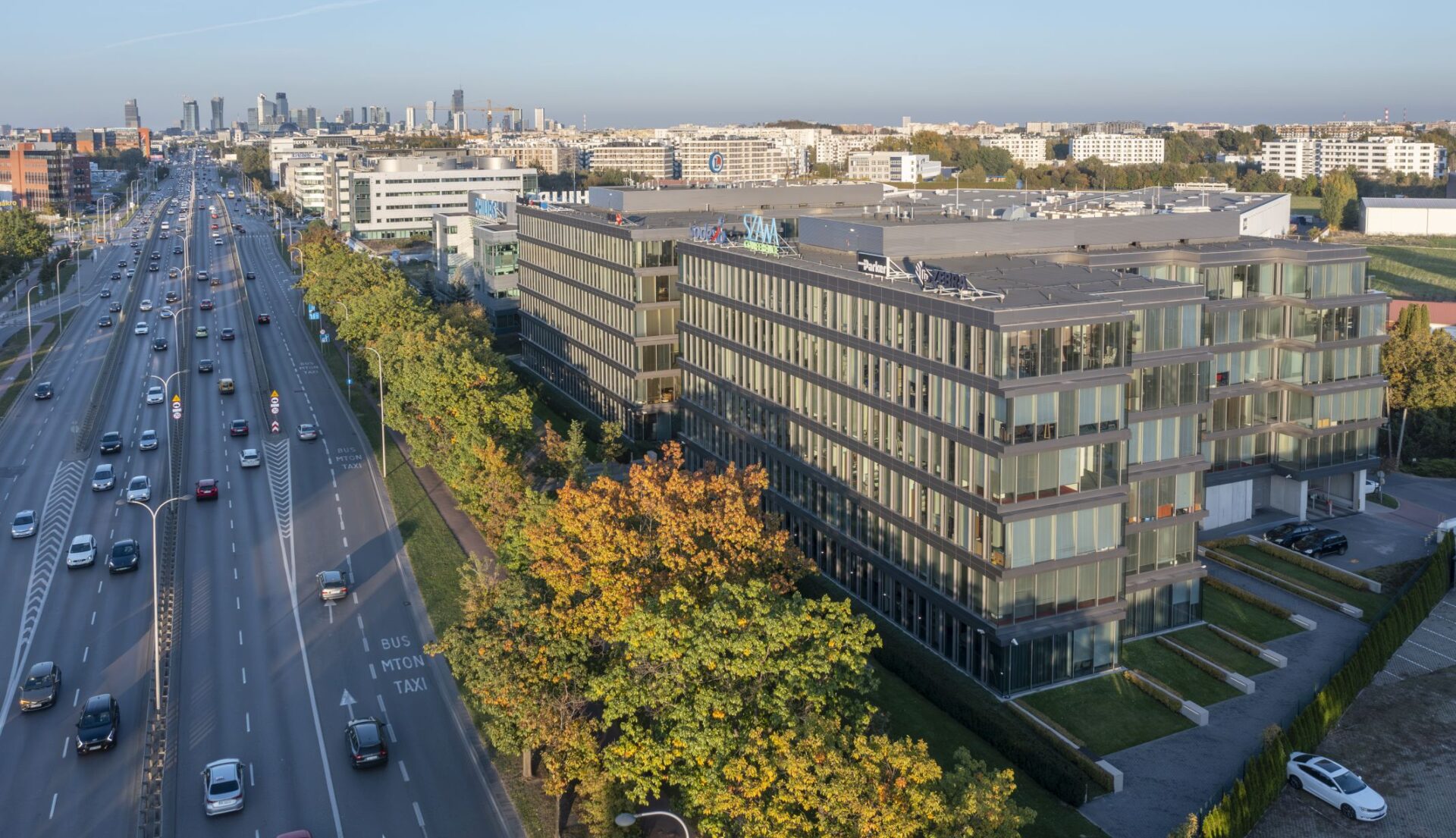Since the first COVID-19 cases in Poland were diagnosed, analyses and reflections on the impact of the pandemic on the real estate industry have been conducted. One of the most interesting issues is the situation in the office market, especially if we take into account the changing needs of companies and their employees. Property managers and owners try to be constantly updated to meet the expectations of tenants and support their business. Let’s take a look at how this market has developed recently and what may change in the future.
Boarder meaning of location
Until recently, the most important criterion for choosing an office was the famous anecdote about three factors: location, location and location. It was a necessary condition, often the only one. This criterion is still valid and crucial for many companies, however, over time it has acquired a boarder meaning. Nowadays, it is not only associated with easy access to public transport or the proximity of the management’s place of residence. It reaches further – to the whole surrounding area, including access to business partners, services and green zones.
This is due, among other things, to changes and trends in the labour market, which determines the development of office spaces. In recent years, the role of the employee has been even more appreciated. Employers have paid more attention to the correlation between the increase in efficiency and work comfort, and, consequently, to the facilities in the office itself and its close surroundings. The relaxing zone has been taken into account in the arrangements, colours and lighting have been changed, original solutions have been added, such as the possibility of designing conference rooms by employees or elements referring to the home décor. In the common areas and around the office buildings, spaces for meetings and activities such as yoga or watching films in the open air began to appear. Facilities have also been introduced for parents with children and owners of pets, e.g. special areas to play with animals or bowls with water.
Growing role of technology
Another factor that is developing the fastest is proptech, i.e. innovative technologies in real estate, which are used both in building structures and to improve work efficiency. An example is the use of an application in a smartphone to manage the reservation system for conference rooms with a directional map for guests, monitoring the current status of free desks in the office or remote control of access to the underground car park. The number of such solutions is still increasing and we can expect this process to strengthen and speed up due to the current global situation caused by the SARS-CoV-2 coronavirus pandemic.
In a virtual reality
As soon as the first cases of COVID-19 were diagnosed, many companies quickly switched to remote mode. As many as 63 percent of the surveyed Poles[1] declared that the employer-provided them with such a possibility due to the epidemic. As it turned out, however, not everyone took advantage of it. Despite the fact that many people positively assess the home office, opinions on the comfort and effectiveness of work at home are divided. A sudden cut-off from the office showed how important direct contact with team members is. The lack of such contact may have a negative impact on work efficiency – for example, it is more difficult to build relationships and trust. In addition, the feeling of belonging to a group or common habits, such as “drinking morning coffee”, cannot be easily replaced in the virtual world.
Changes are coming up
What, therefore, can change in the office market in the near future? Property managers and tenants will certainly pay more attention to security and flexibility. Certain provisions in lease agreements may also change. For example, a definition of force majeure has already been extended so it includes an epidemic or pandemic, during which specific regulations or technical standards do not allow for certain types of work.
In the offices themselves, we will see more hot desks, partitions at open spaces or separate zones for project groups instead of rooms for specific departments. Apart from improving comfort and safety at work, such solutions will allow for more flexible space management. In addition, they can promote faster reskilling, horizontal development and transfers within the company. Working in different project teams broadens knowledge, allows for efficient exchange of information and experience, and teaches faster adaptation to changes.
In properties updates to BMS systems will be implemented more often, enabling effective and more economical management of the entire facility from one place. Access controls to and inside the building are likely to be strengthened. It is possible that there will be limited access to specific rooms, e.g. lifts, or a designated area for couriers, where they will leave the parcels without interaction with others. This, in turn, will make it necessary to implement new procedures or to expand the existing ones. The cooperation between the tenants and property managers should also be strengthened in order to further improve the communications and the process of reaction to threats.
In the office buildings from our portfolio, we have managed to react very quickly to the existing epidemic situation. We have taken preventive measures already at the beginning of March, and the announcements about the activities we have carried out and we plan to execute are communicated to tenants on an ongoing basis. In Wola Center, in addition to the traditional e-mail and telephone communications, we use for this purpose also monitors located in the main lobby and in elevators. Moreover, a spacious lobby with an automatically opened entrance and as many as four elevators allow for keeping a safe distance.
Is there a touchless future ahead of us?
Non-contact office buildings and spaces? Current technologies allow us to implement so-called touchless solutions where they are not yet used on a large scale. For example, voice-controlled lifts are nothing new. So you can imagine the way to the office where, without touching anything, you will get to your desk, then you will launch the coffee machine with a voice and sit with your guest in the conference room, previously booked with the application on your phone.
The future will show which of these solutions will become permanent and will be developed, and which will be unnecessary.
contributed by Marta Wiewiórowska-Kudła, Leasing Manager, Hines Polska
[1] Data from a survey conducted at the end of March 2020 by InsightOut Lab for NEXERA.







